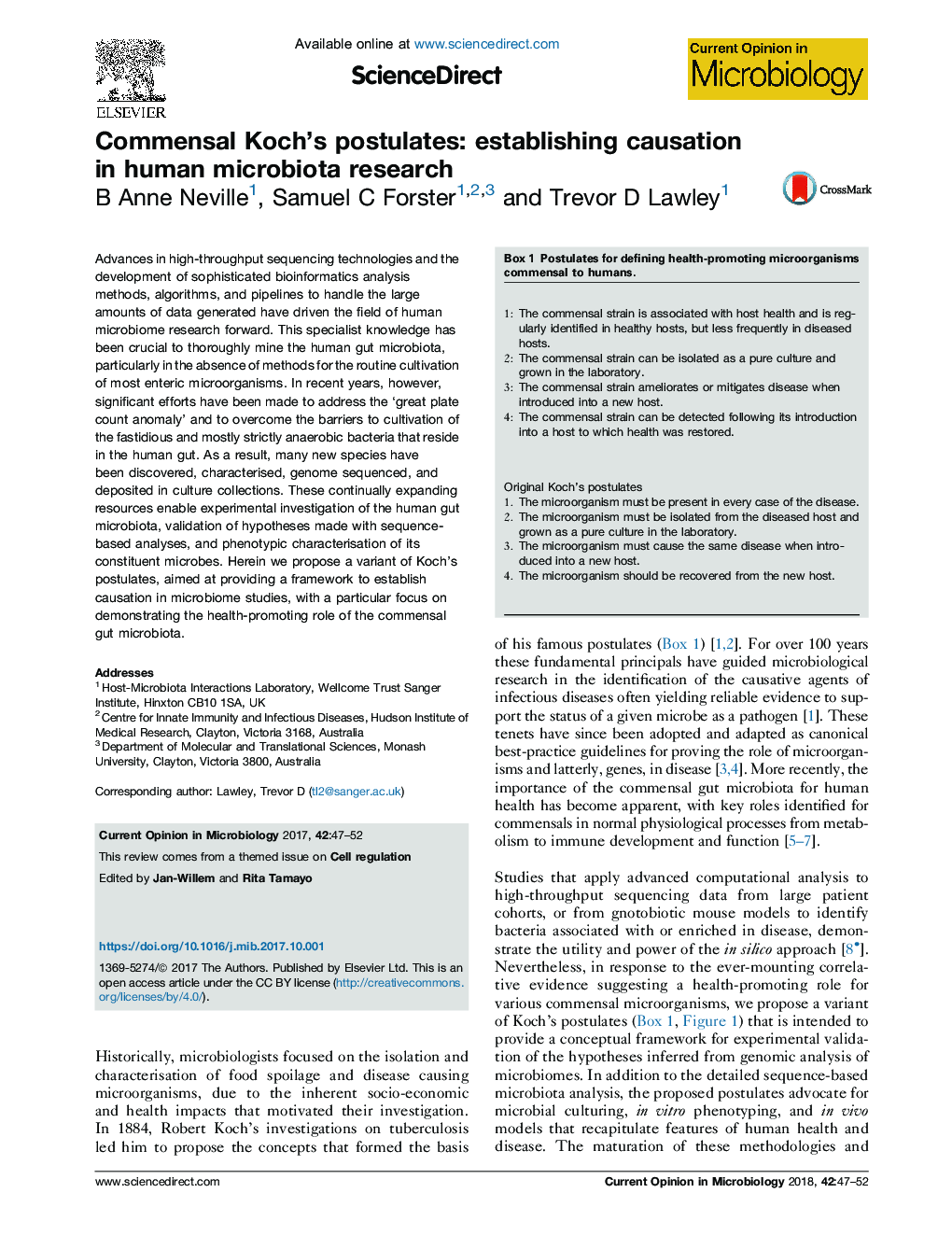| Article ID | Journal | Published Year | Pages | File Type |
|---|---|---|---|---|
| 8745079 | Current Opinion in Microbiology | 2018 | 6 Pages |
Abstract
Advances in high-throughput sequencing technologies and the development of sophisticated bioinformatics analysis methods, algorithms, and pipelines to handle the large amounts of data generated have driven the field of human microbiome research forward. This specialist knowledge has been crucial to thoroughly mine the human gut microbiota, particularly in the absence of methods for the routine cultivation of most enteric microorganisms. In recent years, however, significant efforts have been made to address the 'great plate count anomaly' and to overcome the barriers to cultivation of the fastidious and mostly strictly anaerobic bacteria that reside in the human gut. As a result, many new species have been discovered, characterised, genome sequenced, and deposited in culture collections. These continually expanding resources enable experimental investigation of the human gut microbiota, validation of hypotheses made with sequence-based analyses, and phenotypic characterisation of its constituent microbes. Herein we propose a variant of Koch's postulates, aimed at providing a framework to establish causation in microbiome studies, with a particular focus on demonstrating the health-promoting role of the commensal gut microbiota.
Related Topics
Life Sciences
Immunology and Microbiology
Microbiology
Authors
B Anne Neville, Samuel C Forster, Trevor D Lawley,
